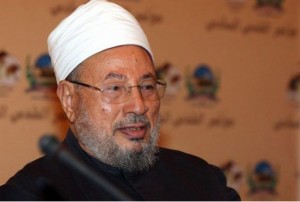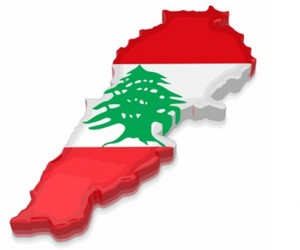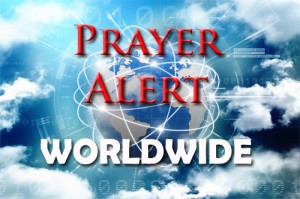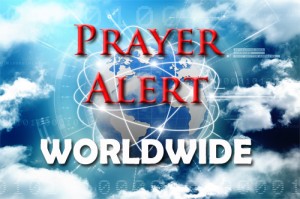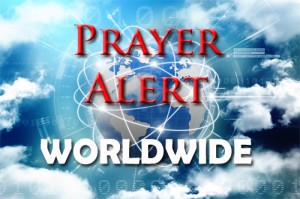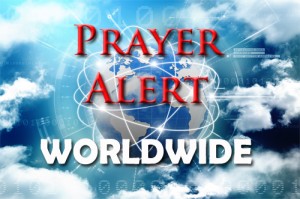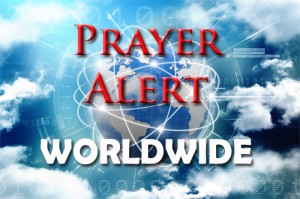Displaying items by tag: Middle East
Qatar's Qaradawi Problem
Earlier this year, President Donald Trump accused Qatar of funding and promoting terrorism all over the world.
“Qatar has funded terrorism at a very high level,” he said, and it seems many in the White House shared his view.
Former White House Chief Strategist Steve Bannon had this to say about Qatar during a discussion at The Hudson Institute this week: “I don’t think it was just by happenstance that two weeks after the summit (in Riyadh) that we saw the blockade by the United Arab Emirates and Bahrain and Egypt and the king of Saudi Arabia on Qatar.”
Bannon also said repeatedly in his remarks that the Qatar situation was more important than the crisis in North Korea.
“I think the single most important thing that’s happening in the world is the situation in Qatar,” he said, expressing his support for the blockade.
Bannon was joined at the event by former U.S. Secretary of Defense Leon Panetta and CIA Director Robert Petraeus, both of whom also expressed concern about Qatar’s ties to terrorism, terror financing, and some of the Islamic world’s hate preachers.
Exhibit A is Yusuf Al-Qaradawi, the Egyptian-born cleric and religious leader who is now a Qatari citizen and has used Al-Jazeera, Qatar’s state-funded media outlet, to spread a message of hate across much of the Middle East.
If the Trump administration hopes to help end the ongoing blockade on Qatar, then it must pressure the Gulf nation to distance itself from hate preachers, especially Qaradawi, and allow him and others on the list to face consequences.
For many years Qaradawi’s talk show on Al Jazeera has condoned and encouraged suicide bombings especially against Israelis. The controversial preacher has endorsed Hitler and the attempted genocide of the Jewish people throughout history.
“The last punishment was carried out by Hitler. By means of all the things he did to them — even though they exaggerated this issue — he managed to put them in their place,” he has said. “This was divine punishment for them.”
Qaradawi has also suggested that homosexuals should be punished either by being burned or thrown off a building. The Islamic State group put his theories into practice when it chose to execute gay men in that very way.
Qaradawi’s views have resulted in bans on Qatari citizens entering several countries, including the United States, the United Kingdom, Tunisia and France.
In many ways his personal fortunes reflect those of the emirate of Qatar which he now calls home. Not long ago he was respected across the globe; now he is an international pariah.
Qaradawi is also on a list created by Saudi Arabia, UAE, Bahrain and Egypt of 59 people and 12 Qatari entities that are accused of promoting terror. Qatar has also repeatedly ignored extradition requests for Qaradawi from Egypt that began in 2015 when the cleric called for jihad in Egypt after the ouster of the Muslim Brotherhood.
Since the beginning of the crisis, Qatar has not backed down from its love for Qaradawi; he even attended a Ramadan dinner with Qatar’s ruling emir.
Qatar must also disavow Qaradawi and cast out such “religious leaders” if they want to once again be viewed as a reliable anti-terror partner. Qaradawi is not merely an example of Qatar’s support for terrorism; he is a reflection of what unchecked and unchallenged religious authority looks like, and his support for terrorists like Hamas and the Muslim Brotherhood, his calls for violence, “resistance” and jihad must be opposed by all those who favor freedom, peace and justice.
Some of the demands on Qatar — such as shutting down Al-Jazeera — may be unrealistic but if Qatar really wants the rest of the world to believe it opposes terrorism, it could start by deporting one of its most fervent endorsers.
Lianne Hikind is a professional writer in Florida and small business owner. She has been previously published by the Media Research Center and the Times of Israel. She was formerly on the board of Great Things for Israel.
The views expressed in this opinion article are solely those of their author and are not necessarily either shared or endorsed by the owners of this website.
By: Lianne Hikind on October 31, 2017 at 3:35pm
CONTINUED FOCUSED PRAYER FOR CHRISTIANS IN QATAR
Christians in Qatar are requesting prayers for the current diplomatic crisis their country is in. A growing number of other Arab countries have cut all ties with Qatar. The future for Qatar and its hundreds of thousands of migrant workers – tens of thousands of those being Christian believers – is unclear.
Open Doors spoke to several Christian believers living in Qatar. All of them asked for prayers for the developing situation. Saudi Arabia, UAE, Bahrain, Egypt, Yemen and other smaller states have severed diplomatic ties with Qatar over its alleged support for Islamist groups. “Let’s just pray this problem will not escalate further… that they will be able to settle their differences,” one believer from an Asian country said.
Up until now, the diplomatic crisis is not the biggest problem for the Christians. “Life goes on, almost normal,” another Christian leader puts it. “For us believers, life is same as last week, but do pray for our safety. There are crowds in the supermarkets because people are scared and are buying food to stock up.”
This leader points out that there have been special prayer gatherings by Christians to intercede for the leaders in Qatar and its neighboring countries. “Because of Ramadan, the holy month of fasting for the Muslims, most of the companies have cut the working hours by 50 percent. Also, Christian workers only have to work half days, so they have more time go to church and to pray.”
Another believer asked for prayers to be focused on peace, “That pride will not stand in the way of resolution; in essence: God’s will for the situation.”
An Open Doors worker expresses the hope that something good comes from this crisis: “Many Christians in Qatar already live with strict limitations to express their faith, and extra pressure on them is not what we want. But hopefully the current media attention on Qatar sparks people to pray for the country and the people living and working there.”
PRAY THAT ALL PARTNERS WILL WORK TOGETHER TOWARD COMMON SOLUTIONS THAT ENABLE SECURITY AND STABILITY IN THE REGION
More: https://www.westernjournalism.com/qatars-qaradawi-problem/
Uncertainty in Lebanon and the Middle East
Many people from around the world are contacting us to ask about the situation in Lebanon.
Lebanon is living under uncertainty; many people are living in fear and news of an imminent war is the talk of the town. On the 4th of November the Lebanese prime minister surprisingly presented his resignation while in Saudi Arabia. This came as a shock to everyone as no one, not even the president or high officials from his own political party knew about that. This is creating lots of suspicion that he is placed under house arrest in Saudi Arabia and that he is part of a political deal that will be put in effect shortly
The Lebanese president has requested international assistance for the release of the prime minister and while many tried to interfere it is to no avail.
The real problem is the escalating tension between Iran and Saudi Arabia and the fear is that Lebanon will be a proxy nation where the Sunni/ Shiite war will take place (same as what is happening with Yemen)
What about the prophetic role and the destiny of Lebanon? We believe that Lebanon is the door to the Middle East and that it is the place from where Christianity will spread to the whole Middle East. The church of Lebanon is used by God now to bring the gospel to countless number of refugees in the land and many are receiving gospels and are now believers in Jesus Christ who died for their sins.
We are first hand witnesses of God’s movement. This may not be the way we ever envisioned that the gospel will go forth but God’s ways are so different than our ways
Fear is rising and threats are real. Already, one in three people in Lebanon is a refugee and poverty is increasing among the Lebanese so a new war whether it is economic, political or military will be disastrous on the nation.
As far as we are concerned, we are continuing reaching out to people in need, restoring childhood to children and educating the leaders of tomorrow. we are still having several bible studies going on with refugees and we are still working out details of camp rent with the owner trying to put demands on him and trying to work a 6 months contract renewable if we see the situation needing us to stay there. We are also still going into Syria preparing for the return of Syrians there
Prayer requests
- That our prime minister would come back to Lebanon
- That our president will be strong and wise in his dealing with the present threat
- That Lebanon will not be used as a proxy nation for nations to settle their conflict
- That Syrians will go back into their own land safely
- That we will be ready for emergency response if needed
- That hearts will be open to the gospel of peace as it is so much needed now
The nations are in an uproar and the kings of the earth plot against the anointed one, they take their stand and take counsel together against the Lord, but the one who sits on the throne laughs at their rebellion - Psalm 2.
We are very happy to know that you are praying for us, for our nation and for the whole Middle East. Jesus is setting the stage for His return and we can’t but pray: come Lord Jesus Maranatha!
Thank you for your love, your care and your support.
A Lebanese Prayer Leader Friend of IPC
Israel: Aid for Syrian refugees
UK documentary director David Cohen filmed Israel's humanitarian work treating victims of Syria's civil war. ‘Love Your Enemies’ was premiered at a special Westminster screening. It featured interviews with medics and patients of pioneering surgery on horrific wounds at hospitals in Western Galilee. The film was enthusiastically received by an audience including former Cabinet Minister Stephen Crabb, Labour’s Ian Austin, Andrew Percy MP, and Israeli deputy ambassador Sharon Bar-li. But in a question and answer session following the hour long film Mr Cohen revealed that discussions with the BBC and Channel 4 over purchasing the film had so far proved fruitless. Israel and Syria are two enemy states, however a young Syrian patient said, ‘we are taught that Israel is the enemy – but all I have seen here is humanity.’ Unfortunately a documentary showing ground-breaking medical relief treatment of 4000+ Syrian war victims was considered ‘too Zionist’ for mainstream British television.
Bedouin: week of prayer
The Bedouin are traditionally Arabic-speaking nomads who live in tents throughout the deserts of the Middle East. In recent decades many have settled into small villages within their tribal territories while continuing to shepherd herds of goats, sheep, and sometimes camels. Culturally they have stronger ties to their families, tribal customs, and traditions than with conservative Islam - though all would declare themselves Muslim. They are very cordial. Even the poorest family will offer a cup of tea or coffee to their guest. Often behind that generosity there is a family suffering from degrees of brokenness and hopelessness. Desert life is difficult. They accept their fate ‘ordained by God and unchangeable’. Because they live in remote areas, they are hard to reach and many have never met a Christian; however, what may seem impossible for us is possible for God. Pray for the Lord to send His rain to soften the dry ground of people’s hearts, sending dreams and visions for people to talk about.
Bahrain wants religious tolerance
For many years intercessors have prayed that Christian persecution would be replaced by interfaith tolerance. Recently the king of Bahrain took unprecedented action in the Middle East North Africa (MENA) region and issued a declaration of interfaith tolerance that he believes will promote similar action in other MENA nations. Muslim, Christian and Jewish scholars reviewed the king’s declaration and hope it will gain sign-offs globally from leaders of all faiths. Individual religious freedom is specified as one of the five points in the declaration. Terrorism, suicide bombing, sexual slavery, inciting extremism, and the abuse of women and children are specifically disowned. Preaching hatred and violence in the name of God is condemned as a desecration of His name. The king has also promised to build a museum of tolerance.
Israel: significant anniversaries
In 1867, two visitors to Ottoman Palestine separately showed that Palestine had declined since the Jews had left. First a British archaeologist, Charles Warren, conducted major excavations of Jerusalem’s Temple Mount and found relics of King David’s city; then American writer Mark Twain, after visiting the Holy Land, wrote a hugely popular travel memoir entitled ‘The Innocents Abroad, or the New Pilgrims’ Progress’. In 1917 the British defeated the Ottoman Empire and took control of Palestine. On 2 November 1917 they issued the Balfour Declaration pledging to support the establishment of a Jewish national home in the territory. In 1948, Zionists drove the British out of Palestine and founded the state of Israel. Then, when Israel captured eastern Jerusalem and its holy sites from Jordan in the 1967 Six-Day War, some claimed the messianic era was nigh.
I kill in the name of religion, you love in the name of Jesus
Paul, a convert from Islam, now works distributing food to newly-arriving Syrian refugee families. Recently, he gave out the last food package he had for the entire month. The lady next in line started crying when she realised there was none left for her family. She told Paul that she and her children were desperate. Paul said they were out of food packages, but offered to pray for her. He also told her how he came to Jesus. As they finished praying, Paul’s phone rang with the unexpected news that another 35 food portions were available. The mother, full of wonder and gratefulness, praised God for how Jesus had answered their prayer. A few weeks later, her husband (who had been fighting with IS) came to meet Paul. He said, ‘I heard what you had done for my family. I thought about how I was in Syria killing people in the name of religion, but you love in the name of Jesus. I left the other fighters to come and meet the man who loved my family, and to learn about Jesus from you.’
Balfour Declaration centenary
Prime Minister Theresa May hosted her Israeli counterpart, Benjamin Netanyahu, to mark the centenary of the Balfour Declaration. It was a British pledge that paved the way for Israel's creation by supporting a Jewish national home in Palestine. Israel and Jewish communities view the pledge as momentous, while Palestinians regard it as an historical injustice. The UK has rejected calls to apologise for their actions and support of Israel as a nation and has said it is proud of its role. Mr Netanyahu had dinner with Mrs May and the shadow foreign secretary Emily Thornberry. Labour leader Jeremy Corbyn, a long-time critic of Israeli policy towards the Palestinians, declined an invitation to attend. The Balfour Declaration was meant to bring peace between two peoples, but 100 years later there is still no peace.
Iran: weapons-grade uranium warning
Ali Akbar Salehi, Iran’s nuclear programme chief, said on 29 October that Iran can begin producing weapons-grade nuclear material quickly if the nuclear deal with foreign powers fails, and insisted that international inspectors would not be given access to Iranian military sites. In early October President Trump told the world, ‘Iran is not in compliance with the deal, and it needs to be renegotiated even though our allies, and even our enemies, do not agree.’ Mr Trump said that the agreement had not curbed Iran’s missile programme and destabilising activities in the Middle East. Mr Salehi said that, although Tehran prefers to keep the agreement intact, they could quickly ramp up uranium enrichment to produce 20% enriched uranium in four days. He made these comments after meeting the director of the International Atomic Energy Agency, Yukiya Amano. Mr Amano also met President Rouhani and foreign minister Mohammad Javad Zarif. See
Jordan: slavery
Jordan is a destination for women and men from south and southeast Asia for the purpose of forced labour. There have also been reports of women from Morocco and Tunisia being subjected to forced prostitution after coming to work in restaurants and night clubs. Women from Bangladesh, Sri Lanka, Indonesia, and the Philippines migrate willingly to work as domestic servants, but some are subjected to conditions of forced labour, including restrictions on movement, withholding of wages, threats, and physical or sexual abuse. $90 is the average cost of a human slave. Pray for Malays and others from different nationalities who get trapped into forced labour. Pray for God to open the eyes of the world to this enormous issue that is happening in Jordan and the surrounding countries.
